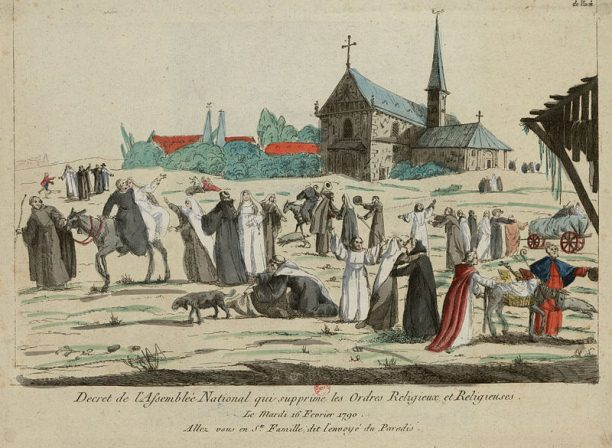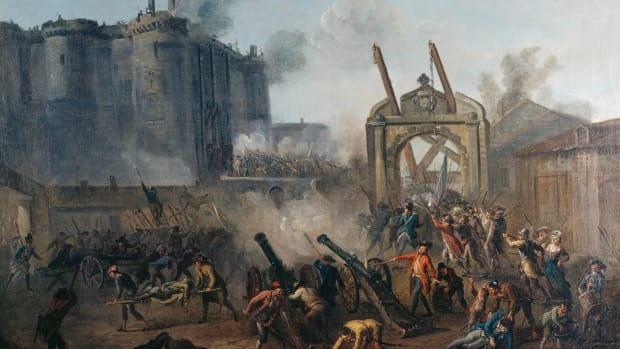Loss in Power of the French Catholic Church
Prior to the French Revolution, Catholicism was France's official religion, and the Catholic Church in France was extremely powerful. The Gallican Church, also known as the French Catholic Church, acknowledged the pope's authority as head of the Roman Catholic Church, but had negotiated certain liberties that favored the French monarch's power, giving it a distinct national identity defined by great autonomy. It controlled about 10% of the land. It also received tithes, which were a tenth of the ordinary people's annual profits, taken as a levy to sustain the clergy.
One of the major effects of the French Revolution is the French Catholic Church was nearly decimated during the Revolution as a result of its powerful position. Its priests and nuns were expelled, its leaders were executed or deported, and the state took control of its property and abolished tithes. The Concordat of 1801, a treaty between Napoleon and the Church, brought this period to a close and defined guidelines for the Church's relationship with the French state. The Concordat restored parts of the Church's historic duties, but not its power, territory, or monasteries. Furthermore, religious worship could never regain its former prominence in France.












